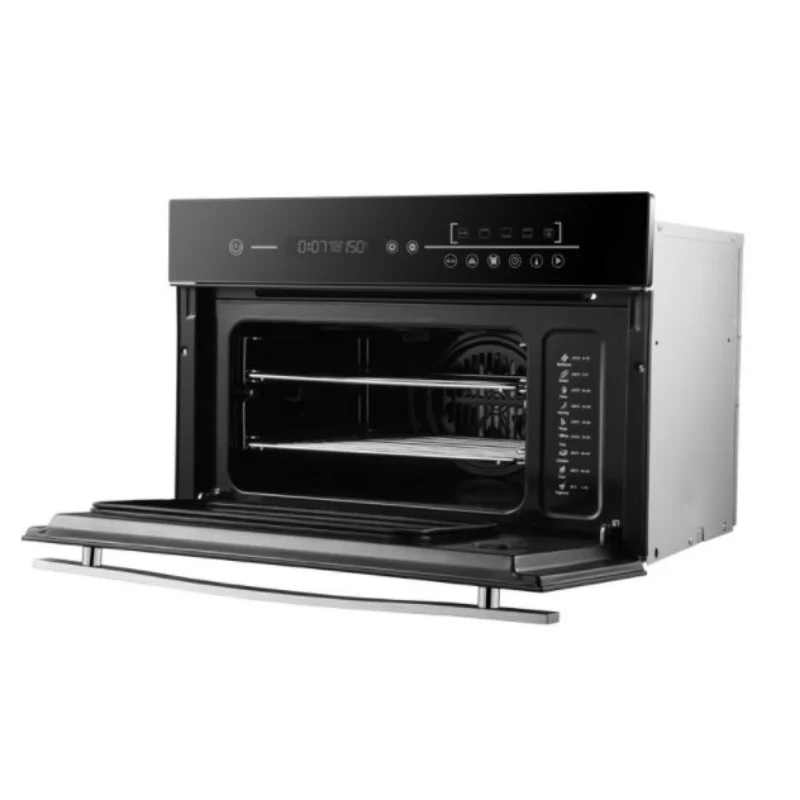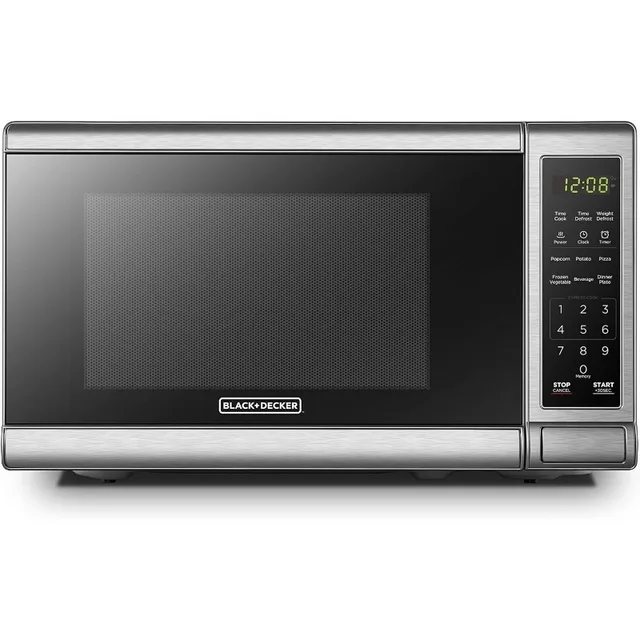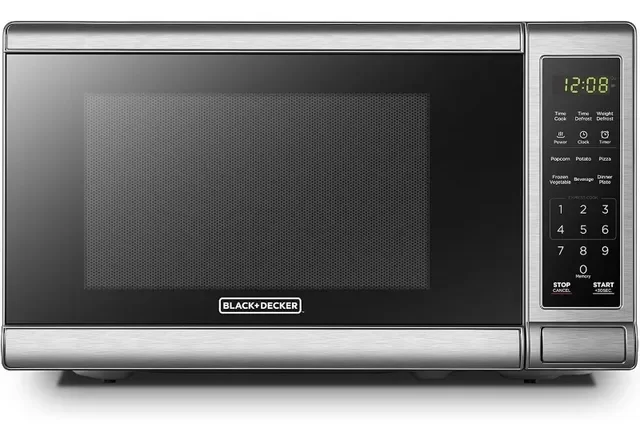Introduction to Microwave Lifespan
When we buy a microwave, we often ask, ‘How long should a microwave last?’ Understanding the lifespan of this common kitchen appliance can help us make informed decisions about purchase and maintenance. Generally, microwaves are built to last. However, how long they serve you can vary widely. Multiple factors contribute to their longevity. From the quality of the unit to the frequency of use, each aspect plays a role. In this section, we will explore these variables. We’ll also discuss the average lifespan you might expect from a typical microwave. Moreover, we will provide insights on getting the most life out of your appliance. With proper care, you can even extend its operation beyond the average expectancy. Stay tuned, as we delve into the factors influencing how long a microwave should last.

Factors That Affect Microwave Longevity
Several key factors determine how long a microwave will last. These factors can shorten or extend a microwave’s service life. Let’s look into each one.
Quality and Brand of the Microwave
High-quality microwaves from reputable brands often enjoy longer lifespans. These models boast durable parts and reliable performance. In contrast, cheaper models might not last as long due to lower quality components.
Usage Frequency
How often you use your microwave affects its longevity. Regular, daily use can lead to quicker wear and tear. Occasional use might help it last longer.
Maintenance and Cleaning
Regular maintenance and cleaning can preserve a microwave’s condition. Neglecting these tasks can result in damage and a reduced lifespan.
Power Surges and Voltage Fluctuations
Electrical issues like power surges can damage microwaves. It’s crucial to protect them with surge protectors to avoid internal damage.
Cooking Habits
The types of food and cooking methods you use impact microwave longevity. Heavy-duty cooking tasks can strain the appliance more than lighter jobs.
Remember, how long a microwave lasts is not just about time. It’s also about how we use and care for the appliance. Proper usage and care can extend the life of your microwave, giving you many years of service.
The Average Lifespan of Microwaves
When considering a new microwave purchase, a common question is, ‘How long should a microwave last?’ The average microwave lifespan generally ranges between 7 to 10 years. This assumes that the appliance is used under normal household conditions. The longevity can extend beyond this range, depending on several factors previously discussed. These include the quality and brand of the microwave, how often it’s used, and given maintenance. Higher-end microwaves, maintained well, may last up to 15 years. However, cheaper models, or those frequently used, might offer a shorter functional duration. Understanding these averages helps in planning future appliance investments and maintenance schedules.
 Maximizing the Lifespan of Your Microwave
Maximizing the Lifespan of Your Microwave
To ensure your microwave lasts as long as possible, there are several key steps you should follow. Here are the main methods that can help maximize the lifespan of your microwave:
- Use it Correctly: Follow the manufacturer’s instructions for use. This can help prevent unnecessary stress on the microwave’s components.
- Keep it Clean: Regularly wipe down the inside and outside of the microwave. Spills and splatters can lead to corrosion and other issues if left uncleaned.
- Avoid Overloading: Don’t heat items that are too heavy or too large. Overloading can cause damage to the turntable and the internal structure.
- Maintain Evenly: Perform regular maintenance checks. Look out for and promptly address any unusual noises or operation.
- Protect from Surges: Use a surge protector to shield your microwave from electrical spikes that could cause internal damage.
- Rotate Usage: If possible, rotate the microwave with other cooking methods to reduce wear and tear from constant use.
- Handle with Care: Be gentle when opening and closing the door. The latching mechanism is often one of the first parts to fail.
By following these tips, you help ensure that your microwave operates efficiently for many years. Remember that the appliance’s care is just as critical as how often it is used. Taking proactive steps can lead to savings down the line by avoiding the need for early replacement. How long should a microwave last? With the right care, it can surpass the average expectancy.
Signs It?s Time to Replace Your Microwave
Knowing when it’s time to replace your microwave is crucial for kitchen safety and efficiency. Here are some telltale signs that indicate the need for a new appliance:
- Frequent Repairs: Frequent breakdowns signal that it’s more economical to invest in a new microwave.
- Inconsistent Heating: If your microwave takes longer to heat or cooks unevenly, it may be at the end of its life.
- Strange Noises: Unusual sounds, like buzzing or grinding, suggest internal problems.
- Door Issues: Problems with sealing or latching the door can lead to dangerous radiation leaks.
- Visible Wear and Tear: Signs of rust or wear inside the microwave can affect its functionality.
- Outdated Technology: Older microwaves lack efficiency and modern features that improve cooking and energy use.
- Safety Concerns: If the microwave sparks or emits burning smells, stop using it immediately. Safety comes first.
These symptoms help you recognize when a microwave is past its prime. Respond promptly to these signs to maintain a safe and efficient kitchen.
How to Properly Maintain Your Microwave
To keep your microwave in top condition, proper maintenance is key. Here’s what you can do:
- Clean Regularly: Wipe the inside after each use. Clean spills quickly to prevent stains and odors.
- Check the Door Seal: Make sure the door seals tightly. A good seal keeps radiation in and extends microwave life.
- Turntable Maintenance: Ensure the turntable is functioning. If it sticks or wobbles, it may need a replacement or adjustment.
- Inspect and Replace Filters: Some microwaves have filters. Check and replace them as recommended by the manufacturer.
- Keep Vents Clear: Do not block the vents. Blocked vents can lead to overheating and damage.
- Review and Follow Manufacturer Guidelines: Each microwave comes with a manual. Review it for any specific maintenance advice.
- Lubricate the Door Latches: Apply a small amount of lubricant if needed. This can prevent wear on the latching mechanism.
By taking these simple steps regularly, you can ensure your microwave works well for years. This will help answer the question, ‘how long should a microwave last?’ With the right care, the life expectancy of your microwave will often exceed the average span.
 The Impact of Usage Patterns on Microwave Life
The Impact of Usage Patterns on Microwave Life
The way you use your microwave greatly influences how long it will last. Here’s how different usage patterns can affect your microwave’s lifespan:
- Consistent Daily Use: Using your microwave multiple times a day accelerates wear and tear. It can result in more frequent repairs over time.
- Occasional Use: Microwaves used sporadically may have a longer life because they experience less day-to-day strain.
- Type of Food: Reheating small, light meals puts less stress on the appliance than heavyweight cooking tasks.
- Cooking Duration: Short, quick heating sessions are less taxing than using the microwave for extended periods.
- Cleaning Habits: After each use, quickly wiping the interior can prevent long-term damage and improve longevity.
- Power Settings: Consistently using high-power settings can strain the microwave’s components more quickly.
The link between usage patterns and a microwave’s life can’t be ignored. To answer the question, ‘how long should a microwave last?’: it depends. Lighter use and good care may mean your microwave will serve you well beyond its average lifespan. So pay attention to how often and how you use your appliance. It’s a simple practice that can lead to years of additional use.
Disposal and Recycling of Old Microwaves
When a microwave reaches the end of its life, proper disposal is critical. Here are steps to dispose of old microwaves responsibly:
- Contact Local Waste Management: Check if they accept microwaves. Many areas have specific rules for appliance disposal.
- Find an E-Waste Center: These facilities specialize in recycling electronics, including microwaves.
- Retailer Take-Back Programs: Some stores take back old appliances for recycling when you buy a new one.
- Donate if Functional: If the microwave still works, consider donating it to charity or selling it.
Recycling your old microwave helps reduce environmental impact. Follow these suggestions to ensure eco-friendly disposal.

